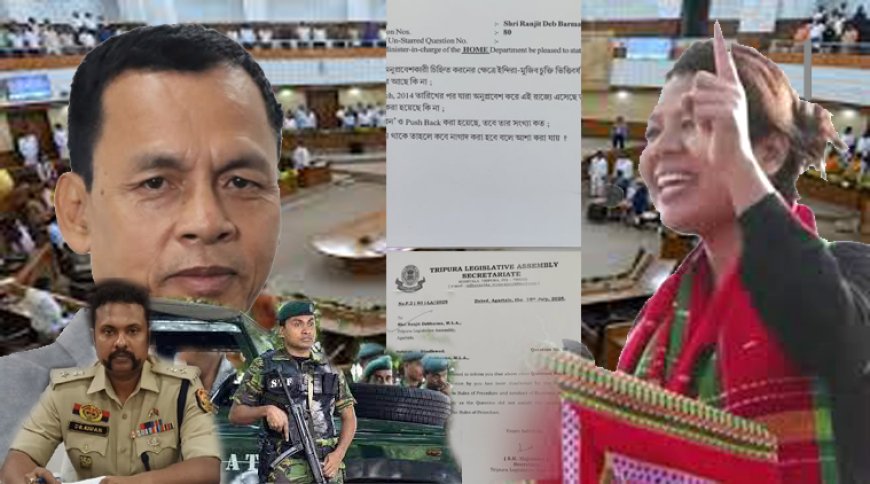Tiger MLA Ranjit Debbarma Refuses to Raise Illegal Immigration Issue in Upcoming Tripura Assembly Session
Tripura’s Chief Minister Manik Saha reaffirmed adherence to the CAA cut-off date of December 31, 2014, and announced formation of Special Task Forces at the district level—including an STF in West Tripura. Tipra Motha has been invited by the Election Commission for talks in Delhi on comprehensive electoral rolls—emphasizing those who entered after March 1971 should be classified as illegal.

In a dramatic turn of events that has rocked the political landscape of Tripura, Tripuris Tiger and MLA Ranjit Debbarma has come under fire after a viral Facebook post revealed he will not be raising the issue of illegal immigration in the upcoming Tripura Assembly session. The post, allegedly made by Debbarma himself, has ignited widespread disappointment and backlash from indigenous communities and political observers alike.
This silence is particularly shocking given Debbarma’s long-standing role as a vocal opponent of illegal Bangladeshi immigration in Tripura. Over the years, he has earned a reputation as a relentless voice defending tribal rights and identity—making his sudden retreat from this pressing issue all the more puzzling.
Allegations Against the Government
Public anger is now increasingly turning toward the state government, with allegations emerging that Debbarma may have been pressured or blocked from speaking on the issue. Many accuse the government of deliberately shielding illegal immigrants to preserve their vote bank and secure financial gains tied to demographic manipulation.
A senior political analyst stated, “This is not just about one MLA going silent. It reflects a deeper, more dangerous political game being played behind the scenes.”
Special Task Force Seen as Symbolic
While a Special Task Force (STF) was created to monitor and deport illegal immigrants in Tripura, citizens claim it is toothless and symbolic, lacking both action and transparency. The Monitoring Committee of the STF, which was supposed to include strong and trusted tribal leadership, remains questionable in both structure and intent.
Community leaders and concerned citizens are now demanding the inclusion of Ranjit Debbarma and Patal Kwina Jamatia—two seasoned activists known for their consistent resistance against illegal immigration.
“If anyone has truly stood up for the indigenous people of Tripura, it’s Ranjit Debbarma and Patal Kwina Jamatia. Their leadership could bring credibility and strength to the STF—if the government is serious at all,”
— said a local activist, requesting anonymity for security reasons.
A Question of Identity and Justice
The issue of illegal immigration in Tripura is not just political—it is existential. With indigenous populations shrinking and concerns over cultural erasure and economic displacement rising, public sentiment is on the edge.
The silence from key tribal leaders in the state assembly, including Debbarma, is being viewed not just as a political betrayal but as a threat to the very survival of Tripura’s indigenous communities.
As the Assembly session nears, all eyes remain on Ranjit Debbarma and the state leadership. Will they rise to the moment—or will silence continue to speak louder than action?
By Choba Tripura
